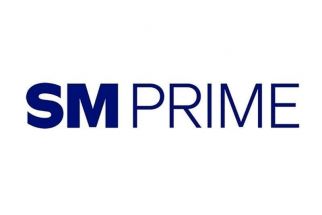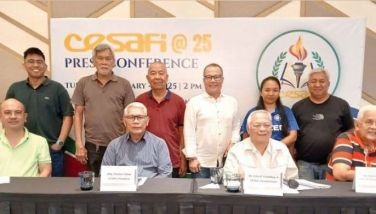DOTC, NTC prepare guidelines on bidding for 3G licenses
November 29, 2000 | 12:00am
The Department of Transportation and Communication (DOTC) and the National Telecommunications Commission (NTC) are preparing the guidelines that will govern the bidding of licenses to offer 3G or third generation mobile telecommunications networks and services in the country.
NTC deputy commissioner Nestor Dacanay said they still do not know how much government will make from that bidding, which will be held sometime during the third quarter of 2001. Under the old setup, frequencies, which are considered limited resources, were freely given to telecom companies upon meeting certain NTC conditions, except for frequencies in the 1800 Mhz range for public mobile telephone systems which has been deferred.
In Europe, telecoms companies paid $120 billion for 3G licenses earlier this year and will spend another $80 billion on infrastructure. To recoup that kind of investment, they will need to get more consumers using high-speed wireless-data services in the near future.
GSM (global systems for mobile communication) or the second generation (2G) is what is currently being offered in the country, allowing people to send text messages to one another via a digital network. The first generation (1G) is the analog network which only allows the sending of voice calls. There is also what is known as the 2.5 G or somewhere in between the second and third generation, called the general packet radio service (GPRS) which will be offered by Smart and Globe early next year.
But unlike WAP which works on WAP handsets only, GPRS will work only on GPRS handsets and 3G on 3G handsets. Smart and Globe would have offered GPRS this year if not for the unavailability of handsets.
GPRS allows mobile Internet users to stay connected to the Web all the time, unlike the wireless application protocol (WAP) which is encountering technical glitches due to the amount of time needed to get connected to the Web.
Dacanay said they have yet to decide whether they will allow two or three operators to offer 3G. "We are actually looking at a 2x30 megahertz bandwidth in the 1950-1980 and 2140-2170 Mhz band. If we decide on two operators, it may be 2x15 Mhz and if three operators, 2x10," he said.
During yesterday’s news conference, Nokia introduced what it calls 3G or third generation, which will be available commercially in 2002. The third generation of mobile networks expands on the services being offered under 2G and GPRS and aims to bring broadband speeds to cellphones.
The 3G network will allow mobile phone users to send text and graphics, digital images, among others. For instance, one can send a picture of one’s self as an electronic postcard to another phone user accompanied by music, choose, reserve, and pay for seats in an opera house in London; get information about a restaurant and reserve a seat; get a copy of a local map; engage in video calls and conference calls, among others.
"Under 3G, an enduser who is approaching a shopping mall can have his mobile terminal display automatically current special offers from the nearby shops. This will be localized advertising delivered to the end user device," according to Andrea Risa, Nokia Phils. senior system marketing manager.
Risa added that 3G is driven by applications, not technology. These applications include location-based information (maps, location and personal profiles); mobile internet (e-commerce, advertising, entertainment, eMail); and person-to-person communications (image messaging, chat). – Mary Ann Reyes
NTC deputy commissioner Nestor Dacanay said they still do not know how much government will make from that bidding, which will be held sometime during the third quarter of 2001. Under the old setup, frequencies, which are considered limited resources, were freely given to telecom companies upon meeting certain NTC conditions, except for frequencies in the 1800 Mhz range for public mobile telephone systems which has been deferred.
In Europe, telecoms companies paid $120 billion for 3G licenses earlier this year and will spend another $80 billion on infrastructure. To recoup that kind of investment, they will need to get more consumers using high-speed wireless-data services in the near future.
GSM (global systems for mobile communication) or the second generation (2G) is what is currently being offered in the country, allowing people to send text messages to one another via a digital network. The first generation (1G) is the analog network which only allows the sending of voice calls. There is also what is known as the 2.5 G or somewhere in between the second and third generation, called the general packet radio service (GPRS) which will be offered by Smart and Globe early next year.
But unlike WAP which works on WAP handsets only, GPRS will work only on GPRS handsets and 3G on 3G handsets. Smart and Globe would have offered GPRS this year if not for the unavailability of handsets.
GPRS allows mobile Internet users to stay connected to the Web all the time, unlike the wireless application protocol (WAP) which is encountering technical glitches due to the amount of time needed to get connected to the Web.
Dacanay said they have yet to decide whether they will allow two or three operators to offer 3G. "We are actually looking at a 2x30 megahertz bandwidth in the 1950-1980 and 2140-2170 Mhz band. If we decide on two operators, it may be 2x15 Mhz and if three operators, 2x10," he said.
During yesterday’s news conference, Nokia introduced what it calls 3G or third generation, which will be available commercially in 2002. The third generation of mobile networks expands on the services being offered under 2G and GPRS and aims to bring broadband speeds to cellphones.
The 3G network will allow mobile phone users to send text and graphics, digital images, among others. For instance, one can send a picture of one’s self as an electronic postcard to another phone user accompanied by music, choose, reserve, and pay for seats in an opera house in London; get information about a restaurant and reserve a seat; get a copy of a local map; engage in video calls and conference calls, among others.
"Under 3G, an enduser who is approaching a shopping mall can have his mobile terminal display automatically current special offers from the nearby shops. This will be localized advertising delivered to the end user device," according to Andrea Risa, Nokia Phils. senior system marketing manager.
Risa added that 3G is driven by applications, not technology. These applications include location-based information (maps, location and personal profiles); mobile internet (e-commerce, advertising, entertainment, eMail); and person-to-person communications (image messaging, chat). – Mary Ann Reyes
BrandSpace Articles
<
>
- Latest
- Trending
Trending
Latest
Trending
Latest
Recommended



























